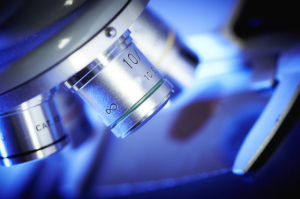by
Thomas Dworetzky, Contributing Reporter | October 07, 2015
Everyone involved in modern medicine knows that medical scopes can be lifesaving tools. But improperly used or cleaned they can also be deadly — as recent duodenoscope-transmitted infection incidents have clearly shown.
To shed light on this challenge, the U.S. Food and Drug Administration (FDA) yesterday issued an order to the three manufacturers of these sophisticated scopes marketed in the U.S.: Start using post-market surveillance to get better insight into the way these devices are reprocessed in the real world.
“This is a significant step in the effort to combat infections spread through duodenoscopes. The FDA has undertaken an in-depth investigation into the factors that may play a role in infection transmission associated with duodenoscopes, and is now requiring manufacturers to study the devices in the clinical setting where they are being used,” said Dr. William Maisel, deputy director for science, and chief scientist at the FDA’s Center for Devices and Radiological Health, in a statement.
Olympus America Inc., Fujifilm Medical Systems, U.S.A. Inc., and Hoya Corp. (Pentax Life Care Division) presently market duodenoscopes sold in the U.S.
They have 30 days to get their plans for such surveillance to the agency.
A spokeswoman for Fujifilm
told The Washington Post that it "will continue to work with the agency to ensure the best long-term sustainable practices.”
A spokesman from Olympus told the paper that the issue is taken "extremely seriously and we intend to comply and provide the requested information." A Pentax Medical representative said it "intends to cooperate fully with FDA to meet this request," according to the paper.
Key to the requested plans, according to the agency statement, is to spell out the approach the companies will use to monitor how well cleaning and disinfection instructions are being followed. In addition, new efforts must get a better handle on the contamination rate of scopes used clinically.
The aim is for these studies to increase the understanding of "factors that may be contributing to infection outbreaks following endoscopic retrograde cholangiopancreatography procedures (ERCP), as well as the information needed to help fill gaps in knowledge," according to the FDA.
